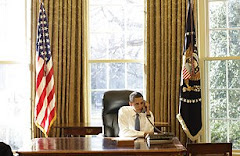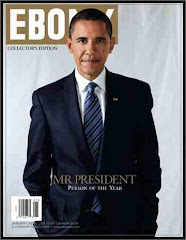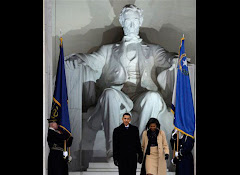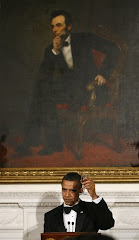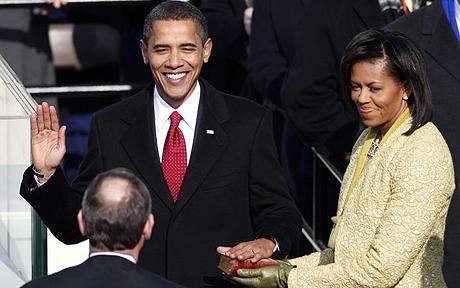
Blast Time Warriors !
An Open Letter To President Obama About The Republicans (from a Republican)
Dear President Obama: I know that from time to time you read Huffington Post because you've written for it. As a Huffington Post reader you'll know that no one on this web site has more faithfully supported your candidacy and now your presidency than me. As a former lifelong Republican, son of a co-founder of the Religious Right; my late evangelical leader father, Francis Schaeffer, I'm in a unique position to tell you a few things about the Republicans from inside perspective. (As you know I left that movement in the mid 1980s.)
The lack of cooperation you're getting from the Republican Party will continue. You were right to indulge in a little bit of tokenism when you had to Pastor Rick Warren pray at your inauguration. But if you think that the Republicans in Congress and the Senate are going to do more than their utmost to obstruct everything you are and what you stand for you're dreaming.
As someone who appeared numerous times on the 700 Club with Pat Robertson, as someone for whom Jerry Falwell used to send his private jet to bring me to speak at his college, as an author who had James Dobson giveaway 150,000 copies of my one of my fundamentalist "books" allow me to explain something: the Republican Party is controlled by two ideological groups. First, is the Religious Right. Second, are the neoconservatives. Both groups share one thing in common: they are driven by fear and paranoia. Between them there is no Republican "center" for you to appeal to, just two versions of hate-filled extremes.
The Religious Right supply the kind of people who at McCain and Palin rallies were yelling things such as "kill him" about you. That's the constituency to which your hand was extended when looking for compromise on your financial bailout bill.
There's only one thing that makes sense for you now. Mr. President, you need to forget a bipartisan approach and get on with the business of governing by winning each battle. You will never be able to work with the Republicans because they hate you. Believe me, Rush Limbaugh and Ann Coulter are the norm not the exception. James Dobson and the rest are praying for you to fail. The neoconservatives are gnashing their teeth and waiting for you to "sell out Israel" or "show weakness" in Afghanistan, whatever, so they can declare you a traitor.
The problem is that when you deal with the Republican Party you're talking to the polished characters in Washington. I wish you could see the hate e-mail's that I have received over the last two years because I supported you, letters calling for God to kill me, telling me that I hate God because I supported you and that I am "an abortionist" and worse a "fag lover" because I've written that I believe that you will be a great president.
What those senators and congressmen are telling you is not what their rabid core constituents are telling them. Their loyalty is to a fundamentalist Christian ideology on the one hand and American exceptionalism of perpetual warfare and hatred and fear of the "other" on the other hand. Between the neoconservatives and evangelical Religious Right Republicans you have no friends.
The good news is that most Americans support you. And if you will just get in the face of the Republican Party and call their bluff you'll be surprised how many individual ordinary Republicans will support you, not to mention the rest of us. America is sick of the Republicans.
The Democratic Party won for a reason: the Republicans failed and have taken us all down with them! You're doing your presidency and America no favor by extending an open hand to the perpetually knotted fist of what has become the embittered lunatic fringe of our country. They would rather go down in flames than "compromise" their ideology.
As you showed us again at your press conference of Feb 9, you are a brilliant, articulate and decent man. Your Republican opponents are not decent people but ideologues bent on destroying you. To quote the biblical adage sir, don't cast your pearls before swine.
B4B Note: Send This Everywhere. Sums things up quite well.























